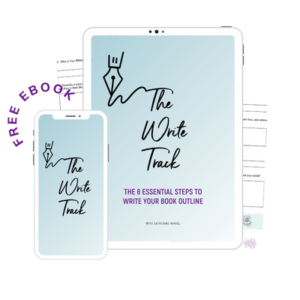Writing coaching can be a game changer for many writers, whether seasoned professionals seeking a fresh perspective or aspiring writers struggling to start their writing journey. A writing coach is a professional writer, usually with a proven track record and extensive experience in the publishing industry, who guides and supports writers to improve their writing skills and achieve their writing goals.
While some might confuse a writing coach with an editor or a teacher with a bestselling author, their roles in a writer’s journey are distinct. A writing coach is involved in the nitty-gritty of the writing process, offering guidance on the development of a book idea, providing advice on the writing style, and helping to navigate the book publishing process.
A great writing coach knows that each writer and each book is unique. They don’t use a one-size-fits-all approach but tailor their coaching services to suit the individual writer’s needs. Book writing coaches, specifically, can be instrumental in helping writers polish their first draft, plan their writing process, write, and provide ongoing support through coaching calls and coaching sessions.
Some writing coaches specialize in creative writing, while others focus on either nonfiction books or-fiction book writing. Some book coaches focus on specific genres like children’s books or short stories. A good coach understands the intricacies of the literary world and has practical knowledge of the publishing industry, which can be invaluable for writers aiming for a book deal.
Why Do You Need a Writing Coach?
Writing can often be a solitary journey, but it doesn’t have to be. Having a writing coach is like having a companion who understands the challenges of the writing process, can offer expert guidance and practical advice, and provide the moral support that is often needed when the going gets tough. The right coach can give inspiration, helping you generate new ideas and keep the creative writing process exciting and enjoyable.
A good writing coach can be particularly beneficial to beginning writers who might feel overwhelmed by the prospect of writing a book. The coach can guide the writer through each step of the writing process, from brainstorming book ideas to writing the rough draft to navigating the publishing world. More experienced writers can also benefit from a writing coach’s work, as they can provide a fresh perspective, critique their work constructively, and offer solutions to overcome writer’s block or other challenges.
Moreover, many writing coaches are published authors with extensive publishing industry experience. They understand the ins and outs of the publishing process. They can guide writers through the complex landscape of literary agents, book proposals, and the actual publishing of the book. Most coaches can also provide valuable insights into market trends and reader preferences, helping writers create a book that resonates with their target audience.
How to Choose a Writing Coach
When choosing a writing coach, finding someone who aligns with your writing style, understands your writing goals and plan, and can guide you effectively through your writing journey is crucial. Here are a few factors to consider:
Experience and Track Record:
Check the potential coach’s credentials first. Look for a coach with a proven track record, published books, and experience in the publishing industry. A book coach with a background in teaching or mentoring is a plus.
Genre Expertise:
If you’re writing a book in a specific genre, working with a coach who understands that genre is beneficial. For instance, if you’re working on a children’s book, look for a coach who has experience in writing community this area.
My zone of genius exists in the nonfiction space. As a result, prospective clients who come to me interested in the fiction space are referred to other coaches within that genre. Although many processes are similar, working with a coach within your preferred genre is highly recommended.
Coaching Style:
Different writing coaches have different coaching styles. Some might be more hands-on, while others adopt a more consultative approach. It’s crucial to find a book-writing coach whose style you resonate with.
Testimonials:
Look for testimonials from previous clients. These can provide insight into the coach’s working style, effectiveness, and the results they’ve helped others achieve.
Remember, writing coaching aims to make you a better writer. Therefore, choose a coach who can provide the right balance of challenge and support, inspire and motivate you, and equip you with the skills and confidence you need to succeed as a writer.
The Role of Book Coaches in the Publishing Industry
Book coaches play a crucial role in the publishing industry. For many authors, writing a book can feel like a solitary journey. However, a book coach can provide much-needed company, offering ongoing support and guidance throughout the writing and copy-editing process.
Book coaches are well-versed in the publishing industry and can help you navigate the intricate world of literary agents, publishing houses, self-publishing options, and contract negotiations. They are there to advise you on crafting an enticing book proposal and guide you through the submission process. They can also connect you with other professionals in the industry, such as copy editors and literary agents.
But it’s not just about getting your book published. A book coach is also invested in your development as a writer. They want to see you grow, improve your writing skills, and, ultimately, succeed in your writing career. They provide the various book coaching, calls, and coaching sessions necessary to help you achieve this, offering feedback and advice on enhancing your writing.
How to Get the Most Out of Your Coaching Sessions
To get the most out of your coaching sessions, it’s essential to come prepared. Before each session, clearly define what you want to discuss. It could be a rough draft of a chapter, a problem you’re facing with your writing or a question about the publishing process. The more prepared you are, the more productive your session will be.
Be bold and ask questions. Your coach is there to provide expert guidance, so make the most of their knowledge and experience. Remember, there are no silly questions in the pursuit of improving your writing skills.
Be open to feedback. One of the key roles of a book coach is to provide constructive criticism. While it can be tough to hear, this feedback is crucial for your writing development. Accept it with grace and use it to improve your own work further.
Finally, apply what you learn. The actual value of a coaching session lies in the advice you receive and how you apply it to your writing. Use the lessons learned in each session to refine your writing style, develop your book idea, and advance your writing career.
Writing coaching can be a transformative experience. With the right coach, a positive approach, and a willingness to learn, you can enhance your writing skills, navigate the publishing world, and bring your book idea to life.
Frequently Asked Questions:
Q: What does a writing coach do?
Answer: A writing coach is a professional who guides and supports writers through their writing journey. They provide advice, feedback, and practical solutions to help writers improve their skills and achieve their writing goals. They are involved in the writing process, offering guidance on developing book ideas, improving writing style, and navigating the publishing process.
Q: How can a writing coach benefit an aspiring writer?
Answer: A writing coach can provide aspiring authors and writers with the knowledge, skills, and confidence they need to succeed. They can guide writers through the writing process, provide constructive feedback, and offer moral support. They can also help writers understand the publishing industry and navigate the book publishing process.
Q: How can I choose the right writing coach for me?
Answer:
- When choosing a writing coach, consider their experience, track record, genre expertise, and coaching style.
- Look for testimonials from previous clients.
- Ensure they understand your writing goals and can support you to achieve them.
Q: Is a writing coach the same as an editor?
Answer: While writing coaches and editors play a crucial role in writing, they perform different functions. A writing coach is involved throughout the writing process, providing guidance, advice, and moral support. An editor, on the other hand, focuses on improving the manuscript’s language, structure, and consistency.
Catherine x

Email: catherine@catherinenikkel.com
Resources
What type of Content Creator are you? Take the Quiz! – 4 different types of creators, which one are you?
Need help telling your story in your own voice? Let’s make it happen. Schedule a consultation with me here






